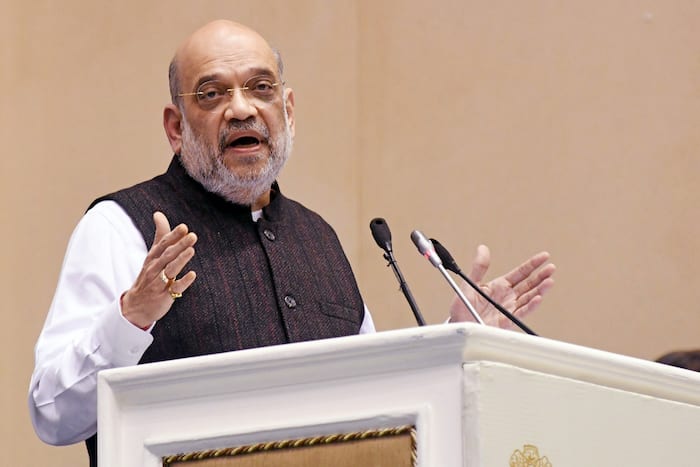Shah said there are cross-border challenges to the administration of justice, trade, commerce and communications, adding that there is no border for trade and crime.
Union Home Minister Amit Shah: Addressing the Commonwealth Legal Education Association (CLEA) and the Commonwealth Attorneys and Solicitors General Conference (CASGC) in New Delhi on Sunday, Home Minister Amit Shah said that crimes and criminals do not respect geographical boundaries and therefore law enforcement agencies do not regard borders as a boundary may consider. constitute an obstacle and should rather regard them as meeting places for solving crimes.
He said that if the three recently enacted criminal laws are implemented in the country, one can get justice up to the level of a High Court within three years of registration of an FIR, adding that the conference is taking place at a time when geographical boundaries are become irrelevant when it comes to trade and crime.
Shah said there are cross-border challenges to the administration of justice, trade, commerce and communications, adding that there is no border for trade and crime.
“Crimes and criminals do not respect geographical boundaries. Therefore, law enforcement agencies should not consider geographical boundaries as an obstacle. In the future, geographical boundaries should be the meeting point for solving crimes,” he said.
Shah said geographical boundaries are neither important for trade nor crime. “Trade and crime are both becoming borderless and in such times, to deal with trade disputes and crime in a borderless manner, we will have to start a new system and tradition,” he said.
Shah said that governments should work in this direction because from petty cyber fraud to global organized crime, from local disputes to cross-border disputes, from local crimes to terrorism, they are all linked in one way or the other.
Referring to the Bharatiya Nyaya Sanhita, Bharatiya Nagarik Suraksha Sanhita and Bharatiya Sakshya Act, he said that after the implementation of these three new laws, India will have the most modern criminal justice systems in the world. The three laws will replace the Indian Penal Code, the Code of Criminal Procedure and the Indian Evidence Act, 1872, respectively.
The Home Minister said the government has been working on a model that justice should essentially have three As: accessibility, affordability and accountability.
He said the scope of the conference is not only limited to courts but it relates to the Commonwealth countries and in a sense to the common people of the entire world, adding that the Constitution of every country guarantees justice and rights has as a common factor and it is the legal system that does the work to realize these concepts on the ground and provide justice to the last person.
He said the link between petty cyber fraud and global organized crime is deepening.
“From local disputes to cross-border disputes, the connection is becoming deeper and deeper. The entire process, from petty thefts to hacking of the banking system and data, has been completed and the link between international terrorism and local crime is also deepening,” the Home Minister said.
He emphasized the need to increase the use of technology to such an extent that it will be possible to integrate all the changes that will take place in technology over the next 100 years.
He said that one can greatly benefit from an artificial intelligence-based translation process in the legal system.
“We can put AI to good use to understand the nuances of the legal system and court cases,” Shah said.
(With PTI inputs)


